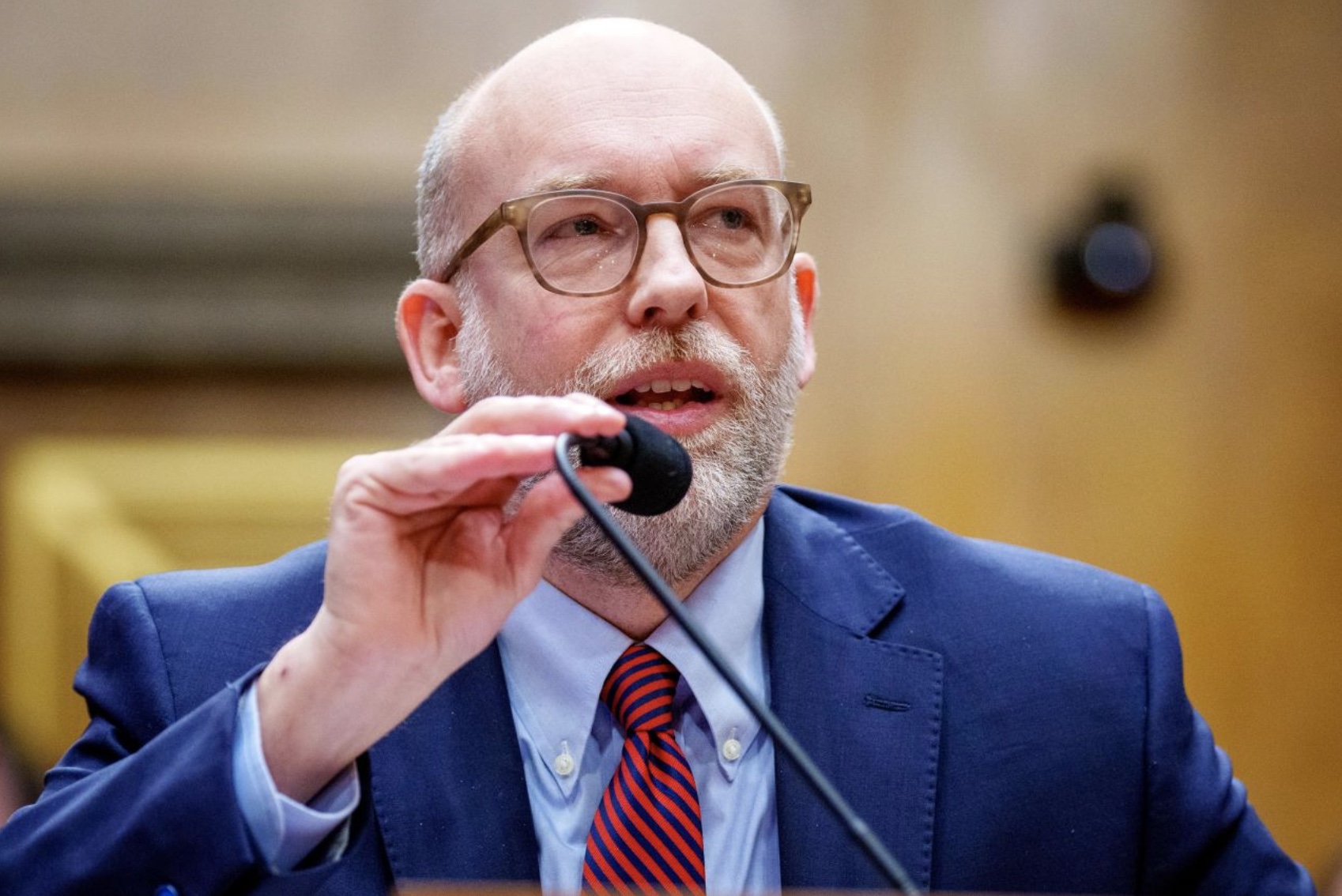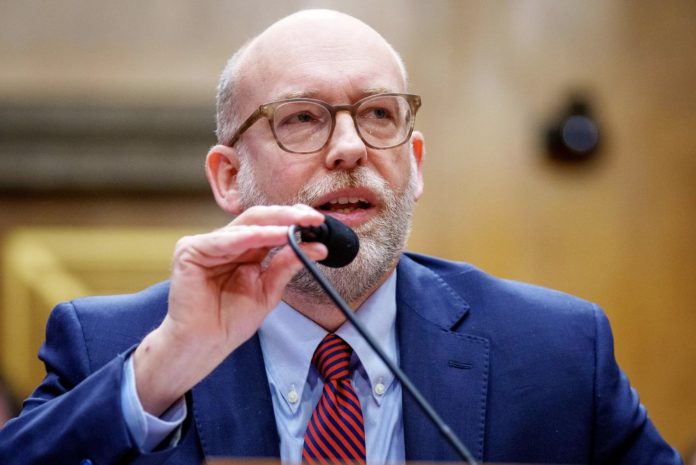ผู้ได้รับการเสนอชื่อโดยประธานาธิบดีโดนัลด์ ทรัมป์ให้ดำรงตำแหน่งหัวหน้าสำนักงานบริหารและงบประมาณ (Office of Management and Budget) ปฏิเสธที่จะให้คำมั่นเมื่อวันพุธว่าจะปล่อยเงินหลายพันล้านดอลลาร์ที่ได้รับอนุมัติไว้สำหรับการช่วยเหลือยูเครน ซึ่งเป็นสัญญาณเริ่มต้นของความขัดแย้งระหว่างสภาคองเกรสและรัฐบาลที่กำลังจะเข้ามาใหม่
รัสเซลล์ โวท์ ซึ่งเคยดำรงตำแหน่งสำคัญนี้ในสมัยรัฐบาลทรัมป์ชุดแรก กล่าวว่าเขาจะไม่คาดเดาความตั้งใจของประธานาธิบดีที่จะเข้ารับตำแหน่งในประเด็นนี้
“ผมจะไม่พูดล้ำหน้าประธานาธิบดีในเรื่องนโยบายต่างประเทศ” เขากล่าว
คำตอบของเขาบ่งชี้ว่ารัฐบาลใหม่อาจใช้แนวทางที่เรียกว่าการระงับการใช้จ่าย (impoundment) ซึ่งอนุญาตให้ประธานาธิบดีปฏิเสธการใช้เงินที่สภาคองเกรสได้อนุมัติไปแล้ว
ขณะนี้มีเงินช่วยเหลือยูเครนที่ได้รับอนุมัติแล้วกว่า 3 พันล้านดอลลาร์ที่ยังเหลืออยู่ และจะขึ้นอยู่กับทรัมป์ในการตัดสินใจว่าจะใช้จ่ายเมื่อเขาเข้ารับตำแหน่ง
ทรัมป์ได้ให้คำมั่นว่าจะลดขนาดรัฐบาลกลางไม่ว่าจะได้รับการอนุมัติจากสภาคองเกรสหรือไม่ ซึ่งอาจนำไปสู่การเผชิญหน้ากับพรรคเดโมแครตและแม้กระทั่งสมาชิกพรรครีพับลิกันบางคนที่มองว่าสภาคองเกรสมีอำนาจในการควบคุมงบประมาณ
สภาคองเกรสได้ผ่านกฎหมายเพื่อจำกัดการใช้แนวทางการระงับการใช้จ่าย รวมถึงพระราชบัญญัติการควบคุมการระงับการใช้จ่าย (Impoundment Control Act) ปี 1974 แต่โวท์กล่าวในระหว่างการพิจารณาคำถามเมื่อวันพุธว่ากฎหมายดังกล่าวขัดต่อรัฐธรรมนูญ
“ประธานาธิบดีได้รณรงค์ในประเด็นการระงับการใช้จ่าย และประธานาธิบดีตลอด 200 ปีที่ผ่านมาเคยใช้อำนาจนี้มาแล้ว เราจะพัฒนาแนวทางการจัดการและยุทธศาสตร์ในประเด็นนี้เมื่อรัฐบาลเข้ามาดำรงตำแหน่ง” เขากล่าว
คำตอบดังกล่าวสร้างความไม่พอใจให้กับพรรคเดโมแครต รวมถึงวุฒิสมาชิกริชาร์ด บลูเมนธาล จากรัฐคอนเนตทิคัต
“ผมรู้สึกประหลาดใจและตกตะลึงที่คนซึ่งอยู่ในตำแหน่งที่มีความรับผิดชอบขนาดนี้จะพูดในลักษณะที่ว่า ‘ประธานาธิบดีอยู่เหนือกฎหมาย'” เขากล่าว
Trump budget nominee won’t commit to spending remaining Ukraine aid

President Donald Trump’s nominee to head up the Office of Management and Budget would not commit Wednesday to releasing billions of remaining dollars approved for Ukraine funding — an early sign of contention between Congress and the incoming administration.
Russell Vought, who also served in the powerful role during the first Trump administration, said he wouldn’t presuppose the incoming president’s intentions on the matter.
“I’m not going to get ahead of the president on a foreign policy issue,” he said.
His answer suggested the new administration would make use of the practice known as impoundment, which allows the president declines to spend money Congress has already appropriated.
There is more than $3 billion in approved Ukraine aid remaining that it will fall to Trump to spend when he takes office.
Trump has promised to shrink the federal government with or without congressional approval, which is likely to lead to standoffs with Democrats and even some Republicans who see Congress holding the power of the purse.
Congress has passed laws to curtail the use of impoundment, including the Impoundment Control Act of 1974. But Vought suggested in his hearing Wednesday the law was unconstitutional.
“The president has run on the issue of impoundment and that 200 years of presidents have used this authority. We will develop the approach to this issue and strategy when the administration is in office,” he said.
Those answers drew the ire of Democrats, including Sen. Richard Blumenthal of Connecticut.
“I’m astonished and aghast that someone in this responsible a position would, in effect, say that ‘the president is above the law,’” he said.
By Kevin Liptak, CNN

















